Interview with CDH director Hugo Quené: past, present and future of the CDH
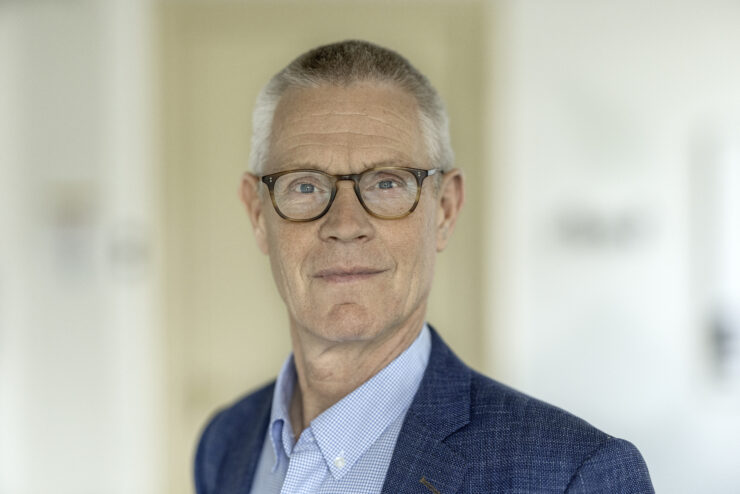
In 2020, the Centre for Digital Humanities (CDH) at Utrecht University was officially launched. In this interview, prof. dr. Hugo Quené, Professor of Quantitative Methods of Empirical Research in the Humanities and CDH founding director, reflects on the past four years since its inception, and shares his thoughts on the future. How should digital humanities evolve in the coming years? And what is his vision for the CDH?
You have been involved in the Centre for Digital Humanities since before its foundation. What motivates you to take on the role of CDH director?
Honestly, there are many aspects of my work that I enjoy. Most importantly, it is the relevance of digital humanities and the opportunity to work alongside bright, like-minded individuals towards shared goals. It is as straightforward as this: we need computational methods and AI-driven tools to ensure the survival of the humanities. From a historical perspective, failing to embrace technological changes can lead to irrelevance. We are facing a lot of new challenges, such as the rise of generative AI, and as a society, we need to respond. At the CDH, we strive to be proactive, encouraging others within the Faculty of Humanities to recognise the value of these developments and nudge them towards change.
The CDH is continuously working to accelerate the integration of digital humanities in academic research and education. Do you also see any potential dangers in these technological developments?
In my inaugural lecture, I used the example of the tape recorder. This ground-breaking innovation revolutionised musical practices, as well as linguistic and ethnographic research. A similar transformation is occurring now within the digital humanities, particularly with AI and machine learning.
“Technological developments will inevitably impact the future of your humanities teaching and research.“
We are approaching a tipping point where digital methods will be a standard approach in humanities. There is no doubt that we will lose some traditional research methods in the humanities during this transition, e.g. phonetic transcription by ear and hand. For me, the only rational response is to embrace these changes and learn about them, rather than fearing them. Being overly optimistic is not helpful either. So, I advocate for a balanced approach: remaining cautious about the technology itself, critically reflecting on the accompanying changes, while also embracing the new and innovative opportunities they offer us as humanities scholars and educators.
What inspired you and your team to establish the Centre for Digital Humanities at Utrecht University?
In 2019, we began the process of establishing the CDH. As Utrecht University has a very large Faculty of Humanities, many individuals were already involved in various digital and computational projects at the time. However, these efforts were spread out, quite diverse, and largely disconnected. Our goal was to bring all these people together to foster closer collaboration and stronger synergy in their work, with a shared purpose across different branches of the humanities.
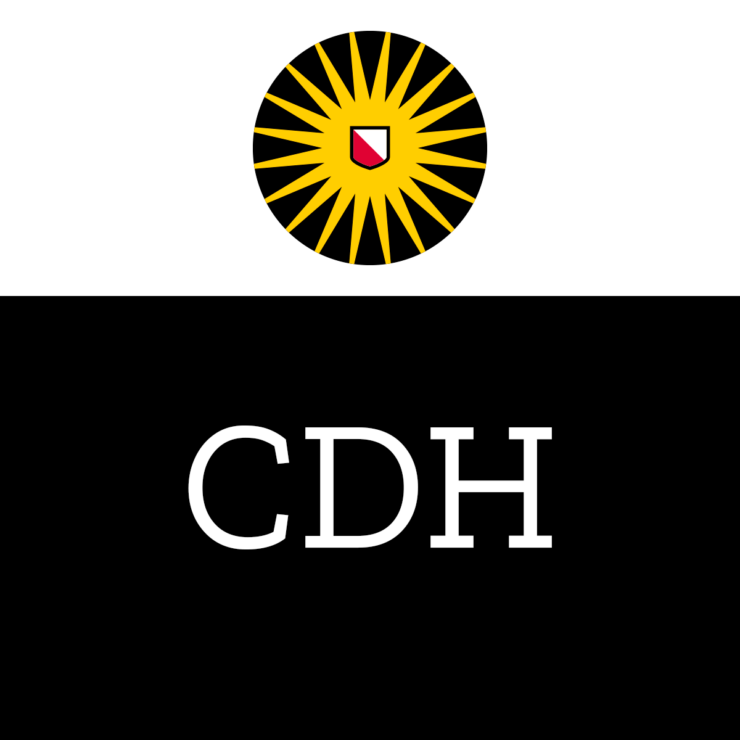
Centre for Digital Humanities
The Centre for Digital Humanities consists of the Research Software Lab, Data School, Institute for Language Sciences Labs and Humanities IT. The CDH also has affiliated members and an advisory board, and works in close collaboration with the Digital Humanities Team at the University Library, where the Digital Humanities Workspace is also hosted.
Looking back over the past four years, what successes have you achieved since the launch of the CDH in 2020?
Firstly, our Research Software Lab has grown significantly since the inception of the CDH and remains a rare example in its concept. Unlike the typical setup where software developers are placed within IT departments or at the central university level, our developers work directly alongside humanities researchers. This approach has attracted considerable interest from other faculties and universities.
“Our Research Software Lab is uniquely specialised, as all our scientific developers bring a strong humanities background to their work.”
Like other developers, they enjoy creating software. However, our developers also hold degrees in the humanities and have conducted their own digital research in this field. This allows them to collaborate effectively with humanities researchers, diving deeper into the theoretical background and research design. As a result, their work is often a co-production of knowledge and software.
Another thing I am really proud of, is the realisation of the Digital Humanities Workspace at the Utrecht University Library, and the weekly walk-in hours we host there. This initiative would not have been possible without the close collaboration with the University Library. Together with their DH Team, we form a group of digital humanities experts capable of tackling complex issues from multiple perspectives. The weekly walk-in hours are open to all UU humanities staff and students, providing easy and direct access. Consultations are also available outside the DH walk-in hours on a case-by-case basis. You can come to us with any questions, whether you are a beginner or an expert. For example, we often provide personalised consultancy where the CDH advises on the computational and quantitative aspects of a funding proposal, aiming to increase your chances of success.
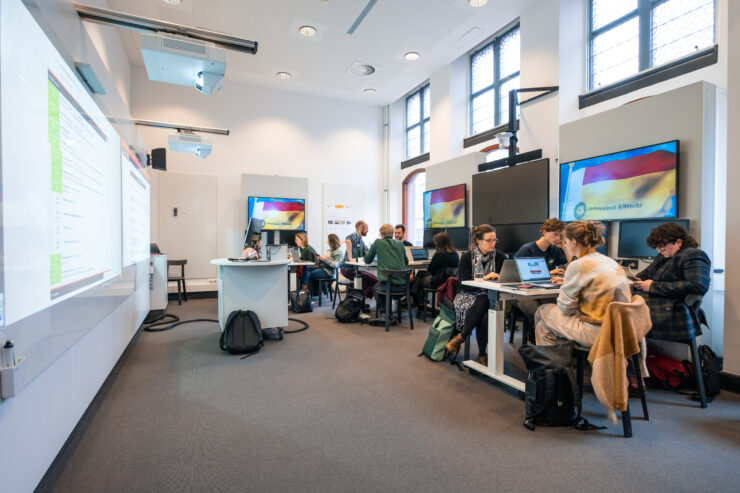
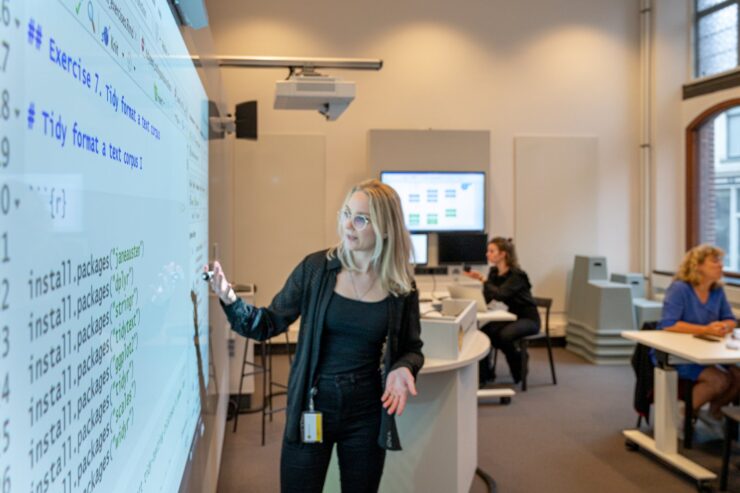
Our most recent success is something I have been passionate about since getting involved in digital humanities. As a teaching professor and a former director of education, I realised the need to integrate digital humanities into our curriculum. My idea was that if we train students in digital methods, they will naturally gravitate towards these topics, thus encouraging teachers to incorporate digital humanities into their research and teaching. So we set out to change the intended learning outcomes (eindtermen) and learning trajectories (leerlijnen) to include ‘digital literacy’ in the form of digital methods and skills.
Starting this academic year 2024/2025, ‘digital literacy’ will become an intended learning outcome in all bachelor programs within the UU Faculty of Humanities, beginning with first-year courses. This change also requires teachers to familiarise themselves with digital humanities, if they have not already done so. They need to prepare students for today’s world, where digital corpora, audio-visual material, and tools such as ChatGPT are already a reality.
“Students will enter a world where digital tools and methods are everywhere.”
The CDH played a crucial role in the process of getting ‘digital literacy’ implemented in all humanities programs: we created a clear roadmap and provided detailed documentation on how to implement the changes. Let me stress that this success absolutely was not mine alone—it was a team effort at the CDH and we owe a great deal to prof. dr. Iris van der Tuin and the CDH affiliated members, who meticulously tailored ‘digital literacy’ to fit each specific discipline within the humanities. Other universities and organisations admire our success in adapting the overall intended learning outcomes and trajectories—it is something no one else has achieved yet. I have been invited by various institutions to share our approach.
Does the CDH team also provide direct instruction to humanities staff and students?
Yes, we do. From the very beginning, the CDH has offered a staff education program twice per academic year, in close collaboration with the DH Team at the Utrecht University Library. While the program was initially focused on supporting humanities staff, it has since expanded to include students, particularly with the introduction of ‘digital literacy’ as an important component in their studies. Our education program is now open and free for all participants from the Faculty of Humanities (UU).
The CDH education program is unique in its size, scope, and focus. We offer diverse courses tailored to the specific digital methods relevant to each discipline, recognising that participants do not need to know everything about ‘digital humanities’—just what is pertinent to their field. If our standard offerings do not meet a particular need, we can provide custom workshops or assist with funding for further external training. We can also provide instructors to teach in humanities courses.
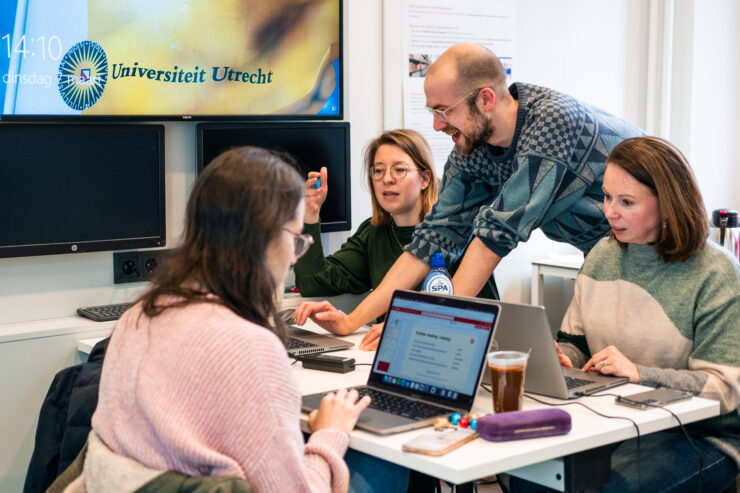
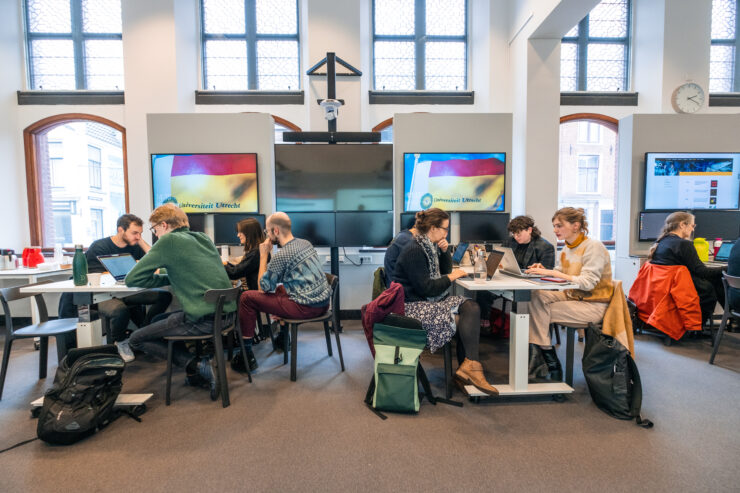
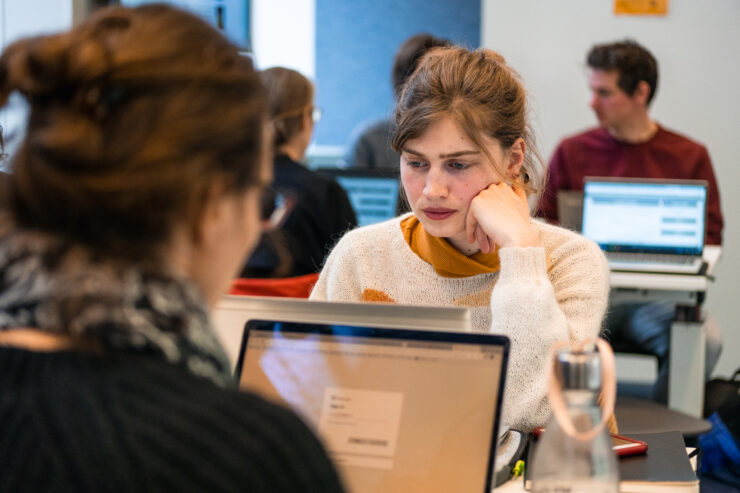
Most of our courses and workshops are designed for beginners in digital humanities, though they often attract participants at all levels, including professors. Unlike some other centres that focus on specialised or niche courses, we deliberately aim to broaden the reach of digital humanities and involve as many people as possible.
“Digital humanities is not just for specialists; it is essential for everyone in today’s digital world.“
It seems like the CDH is making great progress. Do you also foresee obstacles for the CDH in the future?
One of the challenges is that ‘the digital’ does not come naturally to many who choose humanities as their field of study. Some students enter the Faculty of Humanities specifically to avoid working with computers, which can lead to resistance among both students and staff. They may feel that digital technology is not relevant to their projects.
As digital humanities experts at the CDH, our role is to demonstrate that digital tools are indeed highly relevant to the entire humanities discipline. Many of the principles behind digital methods, such as formalisation through coding schemes, are already familiar concepts in the humanities. For instance, using multiple-coloured markers to highlight a text is similar to basic digital analysis, where each colour represents something different. Today, tasks like these can be easily done on a computer or with AI, making digital technology less foreign to the humanities than it might seem. The CDH tries to address this epistemological distance through leading by example: if we can learn these tools and methods, then so can you.
“We demonstrate to humanities staff and students that computational methods and quantitative analyses are far more accessible than they might imagine.”
A significant challenge facing both the CDH and the entire Faculty of Humanities is the current financial uncertainty. The future of academic funding in the Netherlands, particularly in the humanities and social sciences, is unclear, making it difficult for us to prepare for the coming years. We had outlined a detailed strategy for the CDH from 2024 to 2028, but potential budget cuts may require adjustments. Regardless of financial difficulties, I expect that computational and quantitative methods will become increasingly important at our faculty and in society.
What is your vision for the future of digital humanities and the role of the CDH over the next four years?
Our vision for the future of the CDH is to further enhance interdisciplinary research and teaching. We aim to increase collaboration within our faculty, with other faculties, and across universities. As we move towards a greater reliance on computational methods, it is crucial to emphasise the importance of Open Science. Over the next four years, I also want to focus more on societal relevance and impact. Data School is a great example of how digital humanities can be leveraged for public engagement.
Moving forward, we will continue integrating digital literacy as an intended learning outcome in all humanities education programs. Our role at the CDH is to equip bachelor program coordinators and directors of education with the tools, examples, and guidelines needed to effectively implement ‘digital literacy’ in both content and form. We have just begun this transformation, starting with the inclusion of digital literacy in all first-year courses across thirty different humanities bachelor programs. Next, we need to extend this integration to all second- and third-year bachelor programs, as well as master’s programs at the Faculty of Humanities. This process is extensive and will evolve alongside each new cohort of students.
If we are talking about a wishlist, one priority would be to have all CDH teams under the same roof. Currently, we are spread across different buildings, and although we can connect quite easily, sharing a single co-working space would certainly enhance both our collaboration and the overall impact of our work. Having said that, whether we work on the same street or in the same building: all of us at the CDH will continue to support and foster the computational perspective in the humanities.
If you wish to find out more about the Centre for Digital Humanities, you can visit cdh.uu.nl or contact the CDH at cdh@uu.nl.
Registration for the CDH Education Program for the fall of 2024 is still open for staff and students at the Faculty of Humanities at Utrecht University. You can register for free workshops, courses and lectures in digital humanities here:

